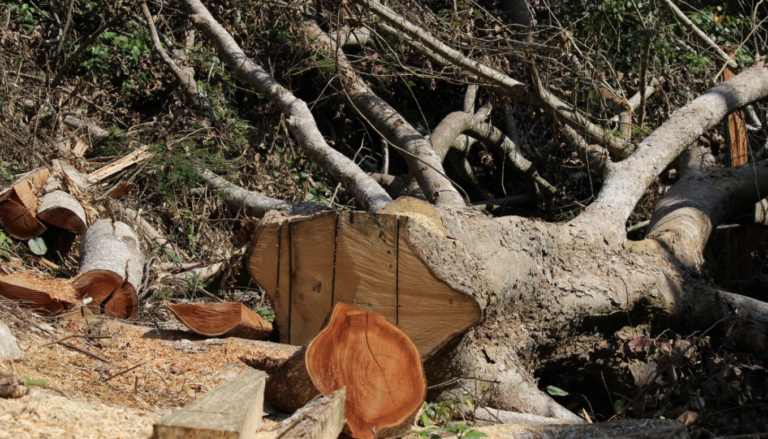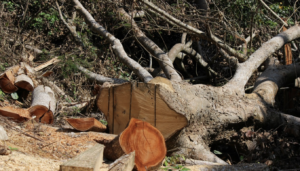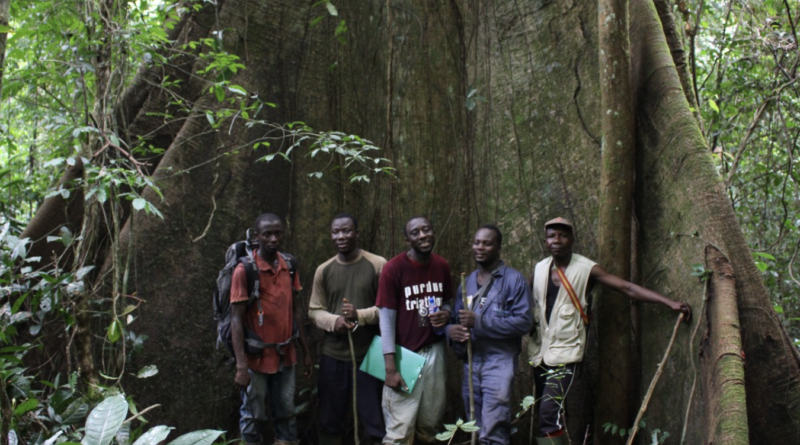Conservation Activist in Ghana Suing the Government to Protect the forest from Mining
Environmental activist groups in Ghana are suing the government to prevent mining in the forest.
In response to mounting requests for more nature reserves to tackle climate change, environmental activists have filed a lawsuit against the government of Ghana to stop a proposed mining project in a protected national forest that they claim threatens their health and wellbeing.
The proposed mine in Ghana’s Atewa Range Forest is a component of a $2 billion agreement with China under which the latter will receive access to bauxite, which is used to create aluminum, in exchange for funding infrastructure initiatives in Ghana like roads and bridges.
About the Atewa Forest
The Atewa Range Forest Reserve in Ghana’s eastern region is internationally recognized as one of the most important ecosystems in West Africa due to its high species diversity, rare species, and hydrological importance. In 1926, the forest was designated as a National Forest Reserve, then as a Special Biological Protection Area in 1994, a Hill Sanctuary in 1995, and one of Ghana’s 30 Globally Significant Biodiversity Areas (GSBAs) in 1999. It is also designated as a Critical Bird Area.
The forest ranges in elevation from 300 to 800 meters. The highest parts are frequently shrouded in mist and clouds, resulting in a distinct flora and trees dripping with epiphytic mosses and lichens. Shade-bearing herbs cover the ground where the tree canopy remains intact.
Atewa forest contains at least 1100 plant species, 56 of which are threatened with extinction and many of which are endemic to the Upper Guinea ecoregion (humid forests west of Togo/Benin) with highly localised distributions. Butterfly diversity is also high – the highest of any site in West Africa – with over 700 species thought to exist, including two unique to this forest (Mylothis atewa and Anthene helpsi). Amphibians include 40 species, one-third of which are threatened. conraua derooi, a critically cndangered cogo clippery frog, has a stronghold in the Atewa Forest.
What is Bauxite?
Aluminum’s primary raw material is bauxite. Almost all of the aluminum produced in history has been extracted from bauxite. Although the United States has a few small bauxite deposits, at least 99% of the bauxite used in the country is imported. The US is also a significant importer of aluminum metal.
Bauxite is a non-mineral. It is a rock made up primarily of aluminum-bearing minerals. It forms when laterite soils in a wet tropical or subtropical climate are severely leached of silica and other soluble materials.
Why would the government allow this mining from China?
The proposed mining for Aluminum in Ghana’s Atewa Range Forest is a component of a $2 billion agreement with China under which the latter will receive access to bauxite, in exchange for funding infrastructure initiatives in Ghana like roads and bridges.
The Ghanaian government, through the Ministry of Roads and Highways (MRH) and the Ghana Highways Authority (GHA), is attempting to combine the well-known, traditional method of road construction and rehabilitation with the new concept of output and performance-based road contracting (OPRC) for the management and maintenance of selected highways and feeder roads in the country’s Brong-Ahafo, Northern, and Upper East regions.
Local Ghanian advocacy groups complaints
According to their lawyer, seven local advocacy groups and four citizens claim that mining in the forest violates their constitutional right to a clean and healthy environment, as well as their right to protect it for future generations.
The government of Ghana’s spokesman did not respond immediately to requests for comment, and the state-owned Ghana Integrated Aluminium Development Corporation (GIADEC) declined to comment.
President Nana Akufo-Addo has previously stated that bauxite can be extracted without causing harm to wildlife, and GIADEC has promised that the expanding bauxite industry will create 35,000 jobs.

Is this deforestation of the northern region?
Experts estimate that at least a million species will become extinct in the next few decades, and the United Nations wants governments to support plans to conserve 30% of the earth’s surface by 2030 at its Biodiversity Convention next year in China.
Local groups across Africa are becoming more confident in using the courts to pursue grievances against mining companies, as they balance the need to boost job creation and economic growth with the preservation of their diminishing forest cover.
According to the U.S.-based Global Forest Watch, Ghana experienced a 60% increase in primary forest loss between 2017 and 2018, the highest increase in any tropical country, with trees lost due to illegal mining, logging, and expanding cocoa farms.
A 90 km away capital city, Accra, receives water from three major rivers that originate in the Atewa forest, which is also home to uncommon plants and animals.
Since 2017, protests, an online petition with nearly 30,000 signatures, a billboard outside the presidential palace, and backing from celebrity environmentalist and actor Leonardo DiCaprio on Twitter calling for the mining to be halted.
Bulldozers have already started cutting routes through the woodland, despite the protesters’ calls for it to be transformed into a national park.
Von Keller Blog is an informational website with public news, company insights and reports of our companies events, news, press and blogging. Let’s Chat.

- Global Pet Adoption by North Shore Animal League - May 1, 2023
- JP Morgan is the Superhero of the Banking Crisis - May 1, 2023
- Data from satellites Deforestation in Brazil’s Amazon has decreased since last year. - March 16, 2023

